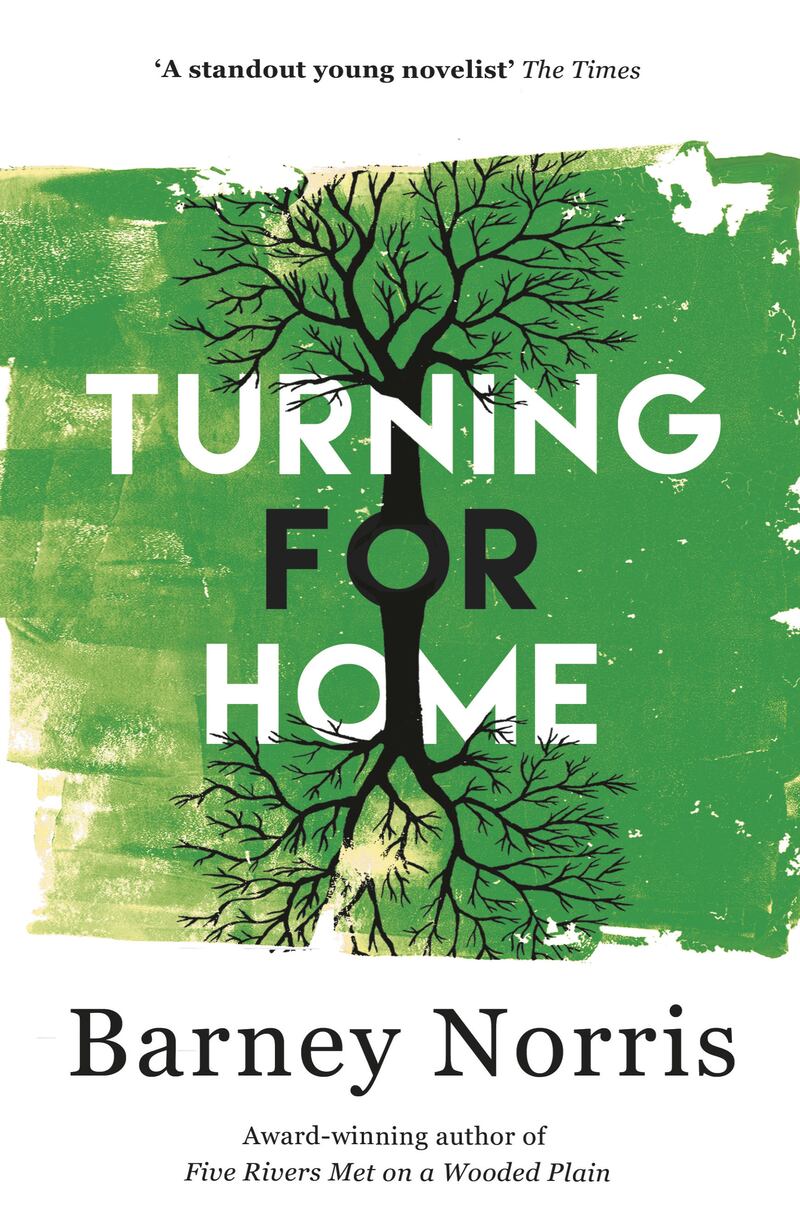Barney Norris is swiftly establishing himself as a determined enlarger of sympathies. His bestselling debut novel, Five Rivers Met on a Wooded Plain (2016), tells the story of five lives – a flower-seller with a sideline in drugs, a schoolboy, an army wife, a security guard, a widower – brought together in the wake of a serious car accident in Salisbury.
Under the gaze of the spire of the city’s cathedral, each of these characters is facing a discrete moment of trauma, and over the course of the novel Norris shows – gently yet unflinchingly – how their hopes, fears, and particular forms of bereavement intertwine.
Norris imbues his protagonists’ narratives with a harmonious resonance that allows their assembled voices to ring with something broader and deeper than individual want, joy or suffering, yet never at the expense of denying the importance of their singular experience, of denying that “there exists in all of us a song waiting to be sung which is as heart-stopping and vertiginous as the peak of the cathedral”.
Turning for Home, Norris's latest work, is similarly concerned with the unheard melodies of our internal song, only here the music is in some ways more discordant. This is not to say that it is lacking in moments of euphony, but rather that the tone of the book, for all its concern with the significance of connectedness and continuity, often reverberates with notes of disruption and isolation.
The story takes place, for the most part, in Hampshire, at the large countryside home of Robert Shawcross, a former civil servant whom we encounter on the May morning of his 80th birthday, and who often longs to find meaning in things.
Robert, as is tradition, is to host the festivities, and soon his family will gather to toast the occasion of his ageing – a phenomenon to which Robert has never fully assented, but for which this year, newly widowed, he has especially little enthusiasm. How, he wonders, will he get through the day?
Already present at the house is Robert’s granddaughter, Kate, a troubled 25-year-old who, unlike her grandfather, seeks a pattern of existence that is free from meaning – one into which she is able to slot unnoticed. “It’s always the same simple dream for me these days”, she says. “I only want to be like other people.”
This yearning for normality can be traced to a recent climacteric in which Kate came alarmingly close to starving herself to death. She now feels preoccupied and characterised by the episode.
But this is not the only thing troubling her. Today she must face and speak to her mother, a driven, distant and short-tempered woman from whom she has been estranged for years. It is this relationship, Kate feels, that accounts for her sense of deficiency and absence: “I think it’s the flaw at the heart of me. I don’t love enough: somehow I never learned how to love when I was young and living at home… when I was growing up, I believed I was broken.”
Now, Kate inhabits a condition in which “all the plans I made have collapsed like old houses, like sandcastles at high tide”. Her mother was the wave (this book is full of water imagery) that washed them away.
Norris embarks on these stories, which he delivers by way of alternating first-person monologues, with the news that transcripts are about to be released of the Boston Tapes – a series of recordings in which loyalist and IRA fighters talk of their experience during the Troubles in Northern Ireland and in which Robert, who was professionally involved in the conflict, has a particular interest. He doesn’t want the bloodshed to have been meaningless.
Yet there are also more pressing matters at hand: on the morning of his party he receives a call from a former colleague, declaring it is imperative that they meet in a matter of hours.
The ensuing narrative, which is punctuated with excerpts from the tapes, goes on to examine how Kate and Robert will respond to their momentous days. The work that results, while occasionally laboured and stylistically inattentive, is so thematically rich that it feels crass to reduce its concerns to a few words, but at its heart lie two preoccupations. The first has to do with the unknown (and perhaps unknowable) lives of others, with the sadness that our love is not (perhaps cannot) be registered and articulated. The second has to do with our longing for a world made meaningful.
____________
Read more:
Book review: Sara Gallardo’s Land of Smoke is powerful, haunting piece of work
Book review: Writing as catharsis, how Amy Tan untangled the knots of her past
Book review: Trumpocracy - an essential read for our times
____________
Norris writes about each of these subjects with wisdom, grace and bravery. There are many moments of tender and plangent observation. Robert offers Kate a place to stay should ever she need one and later berates himself for embarrassing his granddaughter. We already know how much the offer has moved her.
Kate talks of our days being made of “small thoughts strung together so people who love each other too much to say so have something to share. Love among the rubble of an ordinary life.”
These small moments of heart-contracting beauty emerge from realms characterised by terrible pain.
Kate’s recollection of her anorexia, Robert’s reflections on grief, ageing and mortality – these episodes are so acutely registered and unblinkingly confronted as to make you want to turn from the page.
But the truth of Norris’s perceptions holds you there, turning to others, turning in on yourself, and meeting a fugitive vision of home.





